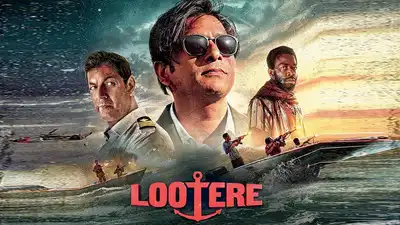ARTICLE AD BOX

In the film business, titles are treated as turfs. Producers rush to register them as soon as a film-worthy subject appears, file paperwork with industry associations, and send legal notices the moment a duplicate surfaces.
But lawyers say that titles themselves don’t carry legal weight. They’re enforced through industry rules, not the courts - as the Bombay High Court recently reminded the producers. Lawyers say the real leverage comes from trademarks.Copyright does not extend to titles alone: Bombay HCLast week, the Bombay High Court reiterated that film titles, on their own, do not have copyright protection. In a dispute over the title Lootere, Justice Sandeep V. Marne ruled that the producers could not stop others from using the name, since there was no claim of copyright violation in the story or the film itself - the fight was only about the title.The case was filed by film producer Sunil, who argued that he had first rights over Lootere because he had registered it with a film producers’ association. He alleged that the defendants, who are producing an OTT series with the same name, were infringing his rights.The Bombay High Court, however, disagreed. Apart from the shared title, the judge found no similarity between the film and the series. The court said that copyright does not extend to titles alone, and since the producer had not alleged copying of the story or the film, there were no grounds for an injunction.
'Film titles are recognised and are enforceable only against members of the same association because they have have contractual obligations against each other'Ameet Naik says,"It is true that film titles do not have copyright vested in them, unless they have been registered as trademarks. Additionally, title registrations granted by producer associations do not have any statutory enforcement in law. These registrations are only recognised and enforced against members of the same producer association as the members of an association have contractual obligations against each other.
He adds,"The recent Bombay High Court order in the dispute relation to the OTT show “Lootere” reinstated the above legal understanding."'Filmmakers should seek trademark registration for film titles'Lawyers point to earlier precedents. In 2007, in Kanungo Media (P) Ltd. v. RGV Film Factory & Ors., the producers of a Bengali film Nisshabd tried to block the release of Ram Gopal Varma’s Hindi film Nishabd starring Amitabh Bachchan.
The Delhi High Court refused an injunction, ruling that mere industry registration carried no legal weight, and that the plaintiff’s film had not acquired distinctiveness or “secondary meaning” in the market.From a practical standpoint, Medha Banta, Senior Associate (Media & Entertainment Practice), stressed the importance of trademarks. “We advise filmmakers and producers to seek trademark registration for titles.
That’s the only way to secure enforceable rights beyond contractual arrangements with producer associations,” she said.'With films, streaming platforms, digital platforms - a single platform for title registration can reduce disputes'Lawyers say that the only solution is that instead of registration with multiple associations, there should be a single platform for title registration. Ameet says,"In this era where content has diversified to so many platforms - films, OTT,TV serials - we need a single window title registration system.
This can effectively eliminate such disputes and conflicts in future."Lawyer Madhu Garodia agrees,"Such a framework would reduce conflicts, provide certainty to producers because now content moves across theatrical, television, and OTT platforms."Box: What the Bombay HC said-Justice Marne clarified that registration of a title with a producers’ association does not give the producer a legal right.-Such registrations are only agreements between members of the association and cannot be enforced against outsiders.-"Violation of registration granted by any association would not give rise to any statutory right… Such a contractual right cannot be enforced against an entity that is not a member of the association," the HC observed.

Kabhi Alvida Naa Kehna
Kabhi Alvida Naa Kehna
Biswaroop Roy Choudhary v. Karan Johar (Delhi HC, 2006)
Facts:
The plaintiff applied to register Kabhi Alvida Naa Kehna (KANK) as a trademark (Class 41) and relied on that application. The defendants (Karan Johar & team) had already registered the title with industry associations (AMPTPP and Producers Guild), completed the film, and were about to release it.
Issues:
Does a pending/advertised trademark application override an industry-association registration and actual use?How much legal value do association registrations have?
Held:
No injunction. The court said what matters most is actual use and goodwill. Since the defendants were ready with their film and the plaintiff had made no progress, the balance was against the plaintiff. Association registrations were treated only as internal trade practices, not stronger than trademark rights or actual use.
The title was also a common phrase, and the plaintiff had delayed filing suit.
Double Trouble
Prism Motion Pictures Pvt Ltd v. Mukta Arts Ltd. (Delhi HC, 2018)
Facts: Prism had registered Double Trouble with IMPPA but never released a film. Mukta Arts released a Punjabi film under the same/similar title.Issues:Does an IMPPA registration give legal IP rights?Can a film already released be stopped on the basis of an association registration?Held: The court said there is no copyright in film titles. IMPPA registration is not statutory and gives no exclusive rights against outsiders.
The film could not be restrained. The court also urged trade bodies to coordinate better to avoid such disputes.

Desi Boys/Desi Boyz.
Desi Boys/Desi Boyz.
Krishika Lulla & Ors. v. Shyam Vithalrao Devkatta & Ors. (Supreme Court, 2015)
Facts: Dispute over the film title Desi Boys/Desi Boyz.
Issues:
Is there copyright in film titles?What is the right way to protect film titles?
Held:
The Supreme Court ruled that there is no copyright in titles. The only real protection is under trademark law, especially if a title has become distinctive (secondary meaning) or is part of a series. This case is now the leading authority, showing why association registrations have no legal force.



.png)
.png)
.png)
















 1 hour ago
4
1 hour ago
4








 English (US) ·
English (US) ·